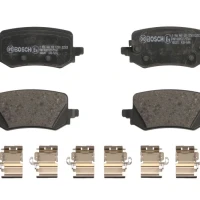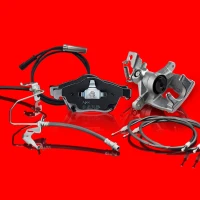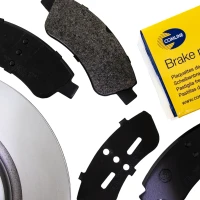The correct lubrication is vital for the compressor. As all moving parts are fitted with high precision, every aspect of the setup is expected to perform within the boundaries of an exceptionally narrow margin. Part of this setup is the lubrication, which is essential for all moving components. Nissens explains what to be careful about and what can go wrong.
The thin oil film between pistons and cylinders ensures their smooth operation, and proper refrigerant sealing. Furthermore, the lubricant works as a cooling agent, extracting heat from the compressor and preventing overheating. Additionally, the lubricant helps to maintain the proper condition of seals, joints and hoses.
Compressor manufacturers have carefully selected the most appropriate lubrication type, in order to ensure maximum vitality and performance for the compressor, and for the entire AC system.
Problem It is not wrong to use additives, but improper use can cause the compressor to seize, making them extremely harmful for the compressor lubrication. If an improper volume of additives, or the wrong kind of additives, is added to the oil, the lubricative abilities of the oil will be impaired.
When the originally applied oil is mixed with another substance, it can affect the structure and composition of the oil film, and thereby weaken its lubrication abilities. This will impair compressor performance, and shorten its life span. A lubricant that is not epitomised to the compressor specifications can lead to overheating, friction and compressor seizure.
Recommended Solution It is of high importance to always follow the compressor manufacturer’s installation instructions, to ensure proper lubrication. Always apply the lubricant type and volume required by the compressor manufacturer.
When using a UV dye agent, stop-leak agents, or system flushing solutions, always strictly follow instructions. System service procedures like flushing, drying or vacuuming require great attention to detail, following every step to the point, and in correct order.
What Might Harm the Lubricant? The following are just some of the things to look out for, when using additives in the AC system during servicing and repairs:
Too much UV agent Using an excessive amount of detergent-based UV agent will dilute the oil. This will result in an improper viscosity and density of the oil, resulting in poor lubrication, which may result in compressor failure. Adding too much lubricant-based UV agent will increase the pressure in the system, exposing the compressor to a higher load. The amount of UV dye used should never exceed 5% of the total volume of the oil.
Flushing agent residues in the system Flushing agent residues in the circuit will significantly impair the oil lubricative abilities. Furthermore, it can deteriorate the Teflon coating in the compressor, causing particles to peel off and clog the system. After flushing, nitrogen must always be used to remove the flushing agent remains and to effectively dry the circuit.
Stop-Leak contamination Improper evacuation of vacuum will leave moisture in the compressor system. As some stop-leak agents work by crystallising moisture in leakage areas, a poorly vacuumed system will experience extensive crystallization. This will cause contamination inside the circuit, reduce lubrication abilities of the oil, and eventually cause the compressor to seize.
To read more of this technical article or download the entire article click
here. There are lots more Tech Tips to view, and they are all searchable, on
TechTips.ie.
 Visibly dark green discoloured oil due to too much UV dye
Visibly dark green discoloured oil due to too much UV dye
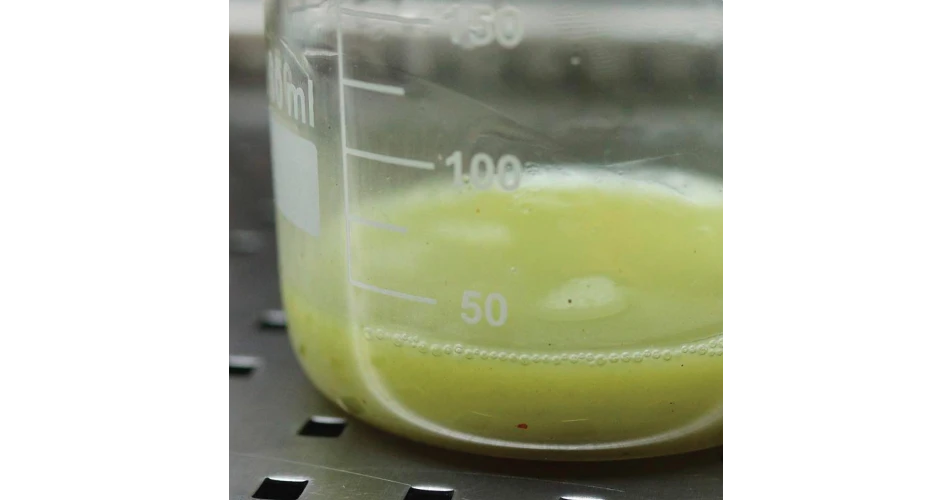 Milky discolouration due to flushing agent contamination
Milky discolouration due to flushing agent contamination
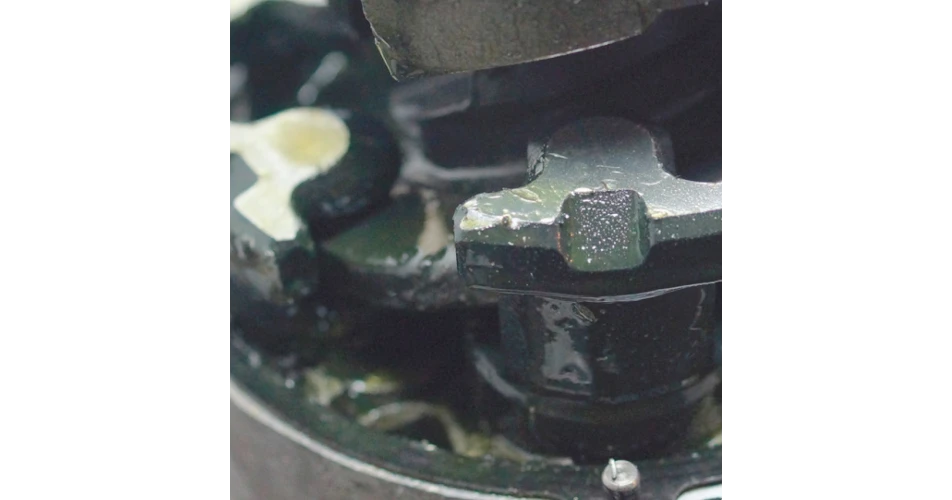 Crystallised stop-leak agent thickened this oil, creating visible grit in the compressor
Crystallised stop-leak agent thickened this oil, creating visible grit in the compressor


